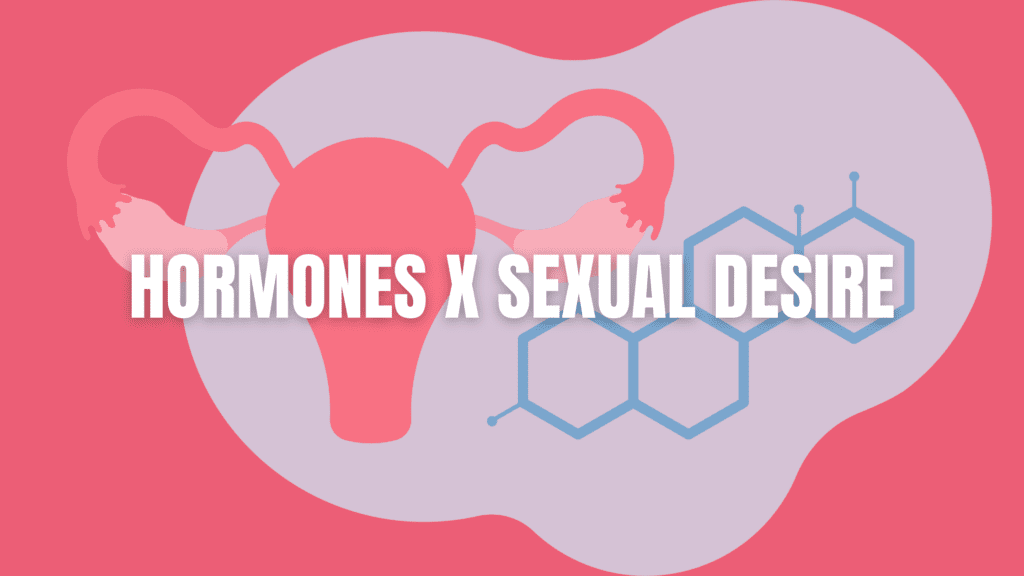Hormones play a vital role in shaping our emotions, physical health, and behaviors, including sexual desire. They act as chemical messengers in the body, influencing everything from mood to energy levels, and yes, even libido. In this blog, we’ll break down how hormones impact sexual desire, explaining it in the simplest way possible.
What Are Hormones?
Hormones are chemicals made by glands in your body. They travel through your bloodstream, delivering instructions to organs and tissues about what to do. Think of hormones as text messages your brain sends to your body, telling it how to respond to various situations.
When it comes to this, several key hormones impact sexual desire. These include testosterone, estrogen, progesterone, oxytocin, and dopamine.
Key Hormones That Affect Sexual Desire
Let’s explore how each hormone influences your libido.
1. Testosterone
- What it is: Often called the “male hormone,” testosterone is present in both men and women but in different amounts.
- How it works: Testosterone is directly linked to sexual desire. Higher levels of testosterone often lead to a stronger libido.
- Impact on Men: In men, low testosterone levels can result in reduced sex drive and even erectile dysfunction.
- Impact on Women: Women also need testosterone for sexual desire. Low levels can lead to a lack of interest in sex.
2. Estrogen
- What it is: A primary female hormone that regulates reproductive health.
- How it works: Estrogen helps maintain vaginal health and keeps blood flow to sexual organs, enhancing arousal.
- Impact on Libido: Low estrogen levels, especially during menopause, can lead to a reduced sex drive and vaginal dryness, making intercourse uncomfortable.
3. Progesterone
- What it is: A hormone that balances estrogen levels and plays a role in pregnancy.
- How it works: High levels of progesterone, like during certain phases of the menstrual cycle or pregnancy, can suppress sexual desire.
- Impact on Libido: Low progesterone levels may sometimes increase sexual interest.
4. Oxytocin
- What it is: Known as the “love hormone,” oxytocin promotes bonding and intimacy.
- How it works: Released during physical touch, hugging, and sex, oxytocin helps build emotional closeness and increases sexual arousal.
- Impact on Libido: Higher oxytocin levels can enhance sexual connection and pleasure.
5. Dopamine
- What it is: A neurotransmitter linked to pleasure and reward.
- How it works: Dopamine spikes during exciting or pleasurable experiences, including sexual activity, boosting your sex drive.
- Impact on Libido: Low dopamine levels can lead to a lack of interest in sex or difficulty feeling pleasure.
Hormones and Life Stages
Your hormone levels change throughout life, and these fluctuations directly affect sexual desire.
1. Puberty
During puberty, a surge in hormones like testosterone and estrogen can result in heightened sexual awareness and curiosity.
2. Menstrual Cycle
For women, sexual desire often varies with the menstrual cycle:
- Ovulation: Estrogen and testosterone levels peak, leading to increased libido.
- Post-Ovulation: Progesterone rises, which may suppress sexual interest.
3. Pregnancy and Postpartum
- Pregnancy: Hormones like estrogen and progesterone fluctuate, which can either increase or decrease sexual desire.
- Postpartum: Low estrogen levels, physical exhaustion, and emotional changes can lead to a temporary dip in libido.
4. Menopause
As estrogen levels decline during menopause, many women experience a drop in sexual desire and vaginal dryness, making sex less enjoyable.
5. Aging in Men
Testosterone levels naturally decline with age, leading to a gradual reduction in libido.
External Factors That Influence Hormonal Balance
1. Stress
Stress increases cortisol levels, which can interfere with hormones like testosterone and estrogen, reducing sexual desire.
2. Diet
A poor diet lacking essential nutrients can lead to hormonal imbalances, affecting libido. Foods rich in healthy fats, zinc, and vitamins can support hormonal health.
3. Exercise
Regular physical activity boosts testosterone levels and releases endorphins, enhancing libido. However, excessive exercise can reduce hormone levels and suppress desire.
4. Sleep
Lack of sleep disrupts hormone production, especially testosterone, leading to lower sexual desire.
5. Medications
Certain medications, like birth control pills or antidepressants, can affect hormone levels and reduce libido.
Can Hormones Be Balanced to Improve Sexual Desire?
Yes! Maintaining hormonal balance can improve libido. Here’s how:
1. Healthy Lifestyle Choices
- Eat a balanced diet with plenty of fruits, vegetables, and whole grains.
- Exercise regularly, but avoid overtraining.
- Prioritize 7–8 hours of sleep each night.
2. Manage Stress
Practice mindfulness, yoga, or meditation to keep cortisol levels in check.
3. Seek Medical Advice
If you suspect a hormonal imbalance, consult a doctor. Hormone replacement therapy (HRT) or supplements may help.
4. Stay Connected
Building emotional intimacy with your partner can naturally increase oxytocin levels and enhance sexual desire.
When to See a Doctor?
If you notice a significant change in your libido that affects your quality of life, it’s worth discussing with a healthcare provider. Hormonal imbalances are treatable, and solutions are available to restore sexual health.
Conclusion
Hormones are powerful players in the complex dance of sexual desire. From testosterone to oxytocin, each hormone has a unique role in sparking and sustaining your libido. Understanding how these hormones impact sexual desire can help you take control of your sexual health and improve your overall well-being.
FAQs
1. Can stress affect sexual desire?
Yes, stress raises cortisol levels, which can suppress testosterone and other libido-boosting hormones.
2. Do men and women experience hormonal changes differently?
Yes, hormonal fluctuations in women often align with their menstrual cycle, while men experience gradual changes, especially in testosterone levels as they age.
3. Can certain foods boost libido?
Yes, foods like avocados, nuts, and dark chocolate can support hormone production and enhance sexual desire.
4. Does exercise always improve libido?
Moderate exercise boosts libido, but excessive exercise can lower hormone levels and reduce sexual desire.
5. Is low libido always linked to hormones?
Not always. Emotional factors, relationship issues, and lifestyle choices can also impact sexual desire.

